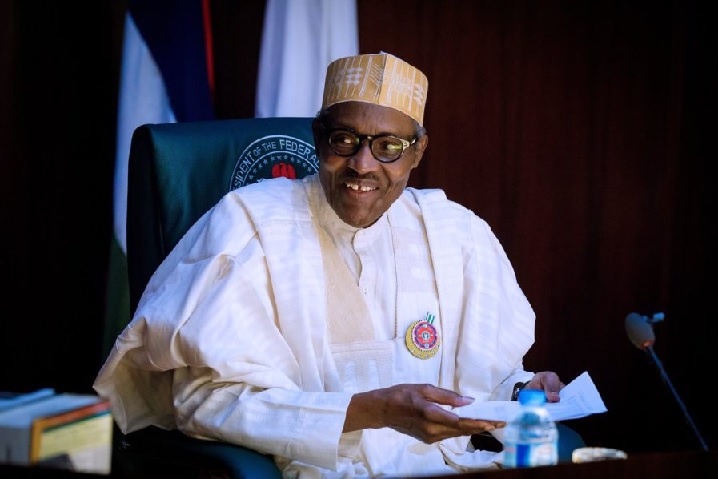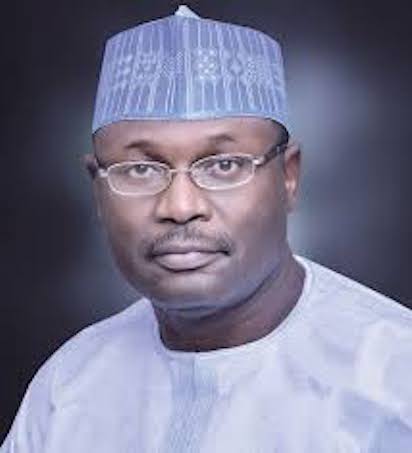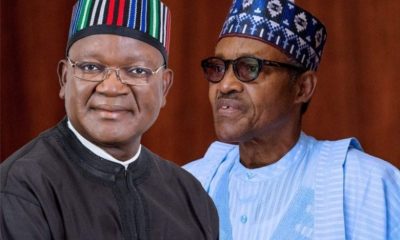POLITICS
Loopholes in the proposed Electoral Act
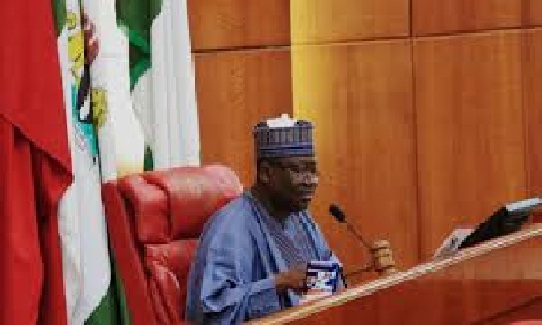
By Dakuku Petedrside
Traditional wrestling in the southern part of Nigeria is intriguing and exciting. To the uninitiated, it would appear there are no rules, but to those who understand it, there are standard rules that govern it.
The electoral system in Nigeria is like the traditional wrestling common to most parts of Nigeria. To non-Nigerian observers, they can place a bet that rules do not govern elections, but to the politically discerning persons, they see rules governed by regulations observed in the breach. Everything Nigerian is unique, though often not properly documented as a model – Nigerian English, Nigerian Jollof rice, Nigerian movies, Nigerian democracy and maybe now Nigerian Electoral Act.Free and fair elections are the bedrock of every functional democracy, ensuring that government authority derives from the will of the people. It is crucial to place rules and regulations that would guide the elections to ensure that elections are free and fair. These laws usually take into consideration, the socio-economic and political context of a particular environment. What would work in ‘Sokoto’ may not work in ‘Shokoto’. Agreed no laws are perfect, and none would completely curb electoral malpractices. Human beings, especially political actors, always have the ability and ingenuity to develop strategies to undermine a rule, however iron cast it looks. Subverting an election is not entirely an African or Third World thing.
Since the return to democratic rule in 1999, Nigeria has been experimenting with different sets of laws meant to enhance the process and credibility of our elections. The latest chapter of this tinkering is the proposed Electoral Act (Repeal and Re-Enactment) Bill 2020, currently in consideration at the National Assembly. There are speculations that the original recommendations of the Joint Technical Committee co-Chaired by Senator Kabiru Gaya of the INEC committee in Senate and Hon Aisha Dukku of Electoral Matters Committee in the House of Representatives, may have been tampered with, especially the provisions on electronic transmission of results and limits on political campaign finance.
According to some of the members of the Joint Technical Committee, the Committee , Clause 50(2) gave INEC the powers to determine the procedure for conducting election, including if chooses, electronic transmission of results. The members expressed shock, like the rest of the country, that its report was apparently tampered with, and words inserted in the said Clause 50(2), that outrightly outlaws the transmission of election results by electronic means. The disputed Clause 50(2) was now made to read as follows: “Voting at an election under this Bill shall be in accordance with the procedures determined by the commission, which may include electronic voting provided that the Commission shall not transmit results of the election by electronic means.”
The Southern Governors’ Forum, in its meeting held last week in Lagos, rejected the removal of electronic transmission of results clause from the Electoral Bill as well as the confirmation of exclusive jurisdiction in pre-election matters on the Federal High Court.
The electronic transmission of election results has been an issue in Nigeria’s elections for some time now. The opponents of this measure have cited, amongst other issues, the poor state of our infrastructure and the ability of hackers and fraudsters to manipulate results when they are transmitted electronically. They point out that the electronic voting process was never part of the Electoral Act of 2010 as amended and that even the card reader has never been part of the Act.
If the above insertion of the “strange” clause 50(2),outlawing electronic transmission of results, passes, the implication is that we are on a backward movement. The original idea behind INEC adopting electronic transmission of results, as seen in Edo elections, is to progress our electoral process to electronic voting. E-voting is no rocket science, and in this age of invention, we do not need to re- invent the wheel. Developed countries such as United Kingdom, France, Germany, Switzerland, and developing countries like India, Venezuela, and the Philippines have all adopted and are using the full compliments of e-voting. On the other hand, paper ballots, manual counting, manual collation, and hand carrying of results represent some of the most significant challenges that have affected the sanctity of elections in our part of the world and made a mockery of democracy. It leads to a lot of contestations and creates a dilemma as to whose result is original. e-compilation and e-transmission of results will strengthen our faith in the electoral system and, by extension, democracy. After all, the essence of democracy is the sanctity of votes. If the ballot is open to contestation, then it does not breed trust.
The contentious nature of our elections has made Nigerians question if it represents the wishes and aspirations of our people. Any act that further depletes trust in the electoral system is an invitation to anarchy and may lead to the death of democracy as we know it today. Due to contentions about the nature and authenticity of election results, the courts now play a more significant role in deciding who is the winner of an election, denying the people the right to free choice. A rejection of electronic transmission of results and a return to the manual transmission of results is a return to everything wrong with elections in Nigeria. For all we care, we might, as well, legalise electoral violence, ballot paper snatching, stuffing of ballot boxes, writing of results in individual homes and multiple results if we are to go back to manual and analogue electoral practices and processes.
The hue and cry of Nigerians over the purported attempt to exclude electronic voting and transmission of results from our electoral law have been deafening. And there is palpable fear amongst Nigerians that were this to succeed, it may mean that the 2023 general elections will be characterised by the flaws that have become the recurring decimal in Nigeria’s polls since 1999. Some Nigerians perceive it as an elite conspiracy to ensure Nigeria fails as a country.
I interpret the clause seeking to exclude electronic transmission of election results from the Electoral Bill 2020 as setting the grounds for cheating in future elections, as we saw in some states in 2015 and 2019. If there is anything we owe the future generation of Nigerians, it is an electoral system representing their aspirations and allowing them to elect the kind of leaders they want.
The second issue is the excessive monetization of the electoral process. The proposal before National Assembly is to move the limit of campaign expenditure for presidency from N5bn to N15bn, governorship from N1bn to N5bn, Senate to N1.5b, House of Reps to N500m, State House of Assembly and Area Council Chairmanship to N50m. The real challenge is in monitoring of this expenditure cap and enforcement of the provisions of the law. A clear case of negative impact of monetization in our politics can be seen in the alleged bribery of INEC officials to the tune of N360m in the 2015 elections by a south – south governor. He did this knowing fully well that these corrupt officials can easily manipulate the system to his advantage. If electronic electoral processes are adopted, these types of assault on our electoral system will be minimized, if not completely eliminated. For many Nigerians, some of the manual processes in our elections are susceptible to manipulation, so there should be electronic accreditation using the card reader backed by law , electronic counting of votes, electronic transmission, and electronic collation of results.
Another area of concern is the confirmation of exclusive jurisdiction in pre-election matters on the Federal High Court. Understandably, the proponents of this rule want to reduce election-related litigation for the interest of our political class and our courts, which are currently overstretched. Many politicians in Nigeria suffer from the double jeopardy of losing elections after spending so much but equally of bleeding cash through endless litigation. A critical look at this provision of the proposed amendment of the Electoral Act will conclusively show that leaving jurisdiction on electoral matters, solely with the Federal High Court would not be the best for the country. It is a fact that most of the election cases in the country are time-bound and must be concluded within a brief time. So, when only the Federal High Courts are allowed to adjudicate on pre-election matters, we are likely to have an ugly situation where many cases would linger for a while whilst waiting to be taken care of within the short period. And if we put judges under undue pressure to give judgments to meet up with time, it leads to half-baked litigations and unsound pronouncements by the judges.
Also causing some rumpus in the proposed bill is the removal of INEC’s power to review results declared under duress or in contravention of electoral laws and guidelines as contained in section 65 of the proposed legislation. For many political analysts, INEC is to review results declared under duress to reduce the level of electoral malpractices that have become so common in our country, which demeans our electoral process and discredits our fledgling democracy.
This proposed clause in the legislation would require serious scrutiny as it has its pros and cons .Forcing an electoral official to declare result under duress is a criminal offense . The real challenge is in enforcement of laws against criminality . We had a case in the last election in Imo State where an INEC Returning Officer lamented before the press that a Senatorial candidate had allegedly kidnapped him and forced him to announce his ‘acceptable’ result. This example is deplorable and abhorrent.
To get it right and for our democracy to flourish, our laws should reflect the will of the people and strengthen our democratic process. Our leaders, especially our lawmakers, should realise that many laws they make today would go beyond their tenures, even their lifetimes. So, it becomes imperative that the process of law-making should be covertly and overtly patriotic and devoid of partisan, tribal or primordial sentiments. Like the wrestling in the southern part of Nigeria mentioned earlier, electoral engagement rules must be clear to all, both the initiated and uninitiated. Electronic voting and transmission of the results are necessary and should be added to the Electoral Act.
POLITICS
2027: No Vacancy in Aso Rock – APC Chairman
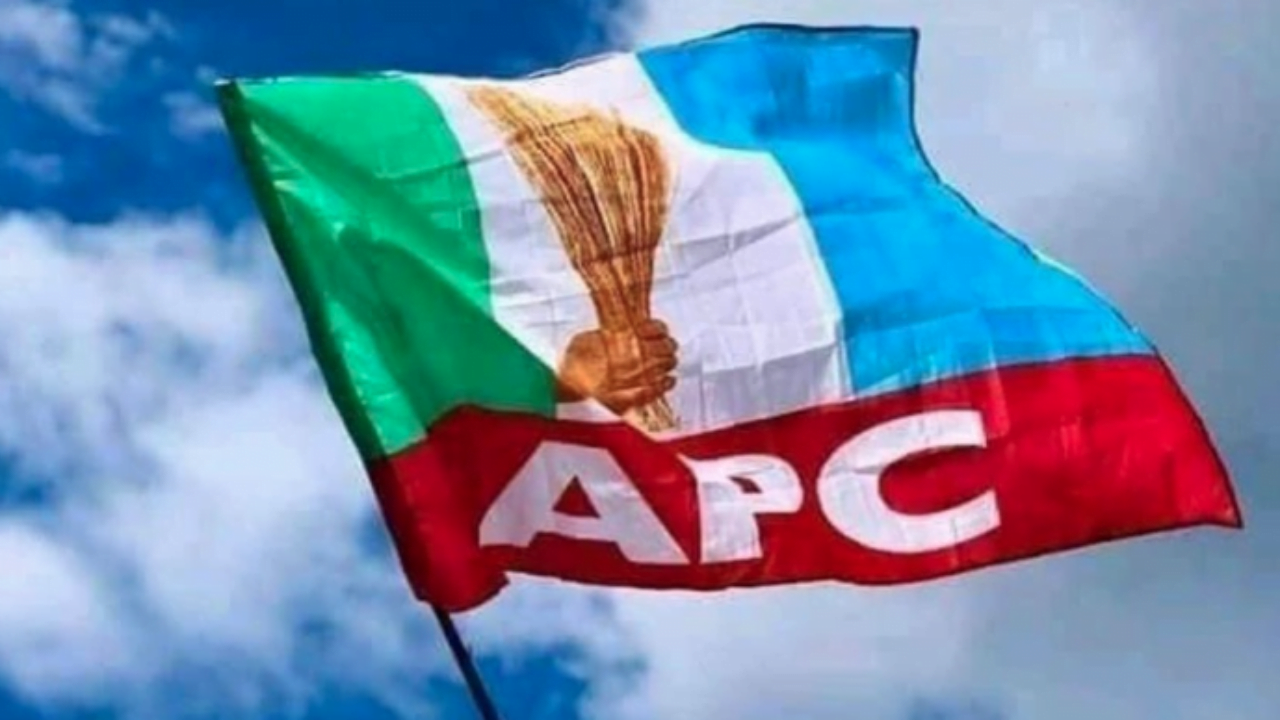
The National Chairman of the All Progressives Congress (APC), Prof. Nentawe Yilwatda has said he is very confident that the opposition parties including the African Democratic Congress (ADC) will fail in their bid to unseat President Bola Ahmed Tinubu in the forthcoming 2027 election.
Yilwatda who was addressing hundreds of supporters of the ruling party under the aegis of the APC league of Professionals, who were on a solidarity visit at the national secretariat of the party on Tuesday in Abuja, said the gains recorded already under the Renewed Hope Agenda of the President Tinubu led administration as basis for his position.
He further assured that the party would ensure that the entire candidates of the party contesting for governorship, National and State Assemblies seats across the country were victorious.
The Plateau state born academic who described himself as the bridge between the old and the young gave example with the students loan, and several other empowerment programmes being undertaken by the President Tinubu led administration that has impacted on the lives of Nigerians positively.
“The child of the poorest man in Nigeria can now go to school to the peak without borrowing from anywhere. The government has made provision for that. This is the only time we’ve had that in the history of Nigeria. Government has dropped N1.5 billion Naira in Bank of Agriculture (BOA) to support young men that want to go into agriculture.
“Never before, never before, never before have we had this opportunity. We have the youths fund being given for the youths. Never before has any government done this. And I can tell you that the opportunity for the young people is right under our President.
What I can show you first is a thank you for this support, a thank you for standing by our party, a thank you for believing in this party.
“Our manifesto targets people like you. The Renew Hope Agenda targets people like you. And I look forward to working with you to ensure that 2027 will deliver the President, will deliver the Governors, will deliver the Senators, House of Assemblies and House of Representatives members.”
Earlier in his address, leader of the group and the pioneer Secretary of the Bayelsa state chapter of the APC, Hon. Marlin Daniel said was confident that Prof. Yilwatda will take the party to the next level of development.
Daniel also expressed gratitude to President Tinubu and the Sen. Hope Uzodinma led Progressives Governors Forum (PGF) over the choice of Yilwatda as the National Chairman of the party.
He expressed optimism that the Chairman will deliver candidates of the party at the coming elections given his experience as a technocrat and politician of several years standing.
POLITICS
Edo PDP Demands Redeployment of INEC REC

By Mike Odiakose, Abuja
Ahead of local government council election in Edo State, the State chapter of the Peoples Democratic Party (PDP) has demanded for the immediate redeployment of the Resident Electoral Commissioner (REC), Dr. Anugbum Onuaha, for his role in the last governorship election.
According to the PDP, the actions of the REC during the last gubernatorial polls undermined the credibility and integrity of the electoral process, and “we cannot allow such a tainted official to oversee the forthcoming bye-elections in Edo State. Dr. Tony Aziegbemi, Chairman, Edo PDP Caretaker Committee, stated this in Benin City while briefing journalists on the preparation of the party for the fourth coming by- election.”We however want to express displeasure that some electoral officers whom we are aware of, from their antecedent, have been compromised”.”His actions during the last gubernatorial polls undermined the credibility and integrity of the electoral process, and we cannot allow such a tainted official to oversee the forthcoming bye-elections in Edo State.The party urged the Independent National Electoral Commission (INEC) and its Chairman Prof. Mahmood Yakubu, a matter of urgency meets this demand and boosts voters confidence and assures the credibility of the process. They also demanded that the Electoral Officers (EOs) during the 2024 gubenaotiral who were in Oredo, Ikpoba-Okha, Egor, Etsako West, Etsako East, and Akoko Edo steer clear of the bye-elections. Their involvement in the alleged irregularities that marred the last governorship election makes their participation unacceptable.According to Aziegbemi, “Having completed this pre election process, our party in Edo State is highly prepared for the polls and are confident that we will emerge victorious. The areas in the contest are traditional strongholds of the PDP and with the quality and credential of our candidates and the support of the people, including our party supporters and members, we are sure of victory at the polls”. He stated.The mantra, “One Man, One Vote”, remains our slogan and this we will uphold during the forthcoming bye-elections. As a party, we will not tolerate any form of electoral manipulation. We insist on a fair, credible, and transparent election and urge INEC, security agencies, and all stakeholders to ensure that every citizen’s vote counts and is protected.”To those who have chosen to defect from our great party, we wish them the best in their future endeavors.However, we remind them that the natural laws of nature also apply to politics. “As we go into the elections, we remain focused on winning the National Assembly seats and as a formidable political party that enjoys the love and support of the people especially at the grassroots, we are confident of coming out victorious.”We urge voters in the various constituencies to remain vigilant, participate actively by coming out enmasse to vote the PDP and its candidates who have the capacity and ability to deliver the dividends of democracy to the people, he said.POLITICS
Osun 2026 Guber: APC Aspirants Should Not Waste Money Contesting Against Adeleke – Ex Party Chieftain, Jackson Ojo

By Mike Odiakose, Abuja
A former Chieftain of the All Progressives Congress (APC), Dr Jackson Lekan Ojo has advised those in the race for the APC ticket not to waste their resources as the victory of Governor Isiaka Adeleke is practically a done deal.
In a video post on his Facebook page, Jackson Ojo said Governor Adeleke has won the heart of the people of his state with his transformation of all the 30 local governments in the State and prompt payment of workers and pensioners.
According to him, the achievements of Governor Adeleke has already done 80 percent of his campaign ahead of the election.
Jackson Ojo, who is a Security Expert and global affairs analyst, from Osun State, stressed that he has always advised political office holders to perform while in office as this is the greatest strategy and tactics to win future elections.
He stressed that the abysmal performance of the APC at the Federal level and the poor performance of previous APC governors in Osun state will count heavily against any candidate that is presented by the party to contest against governor Adeleke.
The former APC chieftain added that he is not patronizing the governor for any personal gain as there is nothing that the governor can give him that God has not already given him.
He stressed that his intervention in the Osun governorship race is to stop opponents of the governor from wasting their resources for an election they can never win.
His words: “Two weeks ago I resigned from partisan politics, so I am no longer member of any political party in Nigeria. When I speak now I am not speaking in favour or against any political party. So, I am very free to air my views
“This is my views on the forthcoming governorship election in Osun state. I still see some people struggling for governor in Osun state come 2026.
“That is highly impossible for an APC aspirant. What is the APC government doing at the national level, what are the doing in the Senate, what are they doing in the House of Representatives to encourage Nigerians?
“If we are in a place like America or United Kingdom (UK) APC will not be able to win ordinary councillorship again in this country. Is it in the management of economy, education, health, security and others?
“In all these areas put together they have not scored up to 10 percent. I can boldly mark them today they they have woefully failed in area of agricultural development, educational development, health development, security, economy and infrastructural development. In all ramifications this party has failed.
“Look at the antecedents of the APC in Osun state. Aregbesola tried a bit, yes, but then Aregbesola left the State aground.
“When Baba Jeje, Mr. Go Slow, the unfortunate Minister of Blue Economy or whatever they call it, came there was nothing to write home about during his tenure as governor of Osun State. He came, he bartered the state, he rubbished the State, he insulted the state, he disgraced the State on the platform of APC.
“Now another APC is coming out now thinking of winning? Winning where, defeat who?
“Governor Adeleke does not know me, there is no benefit Adeleke can give me that God has not given to me. I can’t be a Commissioner in Osun state. No. I can’t be Special Adviser or whatever. I can’t even take their contract. I don’t think they can award the kind of contract that I need to an individual.
“But then, Adeleke has tried. If you go to my community you will see the way he has positively turned the community. Even if I am the governor of Osun State I don’t think I can do what Adeleke has done in my town and that transformation cuts across all the 30 local government areas of Osun State. All the communities, all the local governments, all.
“This man is no longer paying half salary of quarter salary. This man is not owning workers, he is not owning pensioners. This alone has spoken, this alone has done 80 percent of his campaign.
“If you perform well in office that is the highest strategy and tactics that you can use to win the heart of the people.
“Come 2026 whoever is putting money on ground in Osun state to go and contest governorship in Osun state, honestly that person has money to waste. It is sadaka, the money they have stolen they want to come and do sadaka. It is Adeleke till 2030.”





